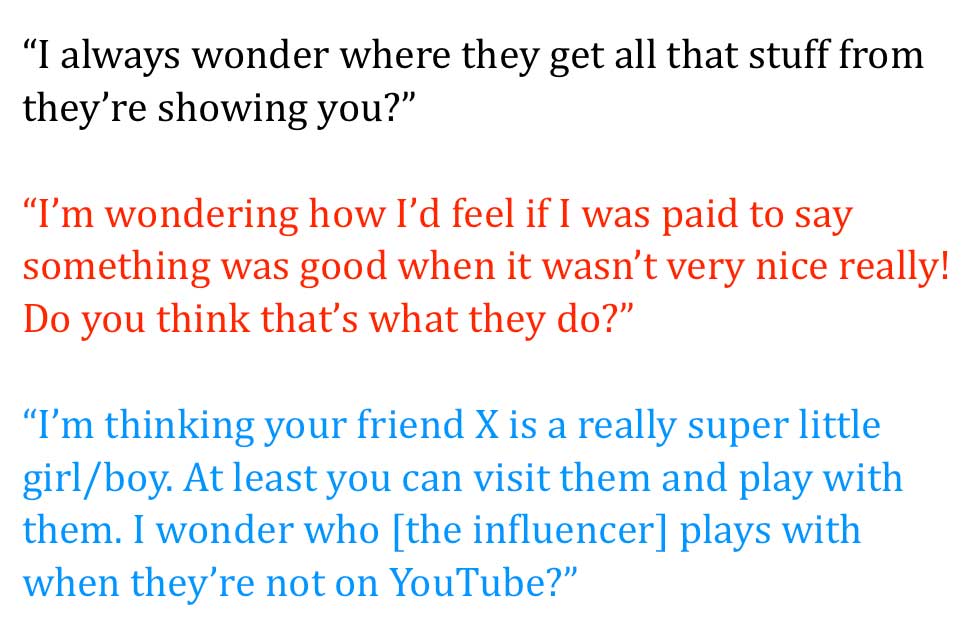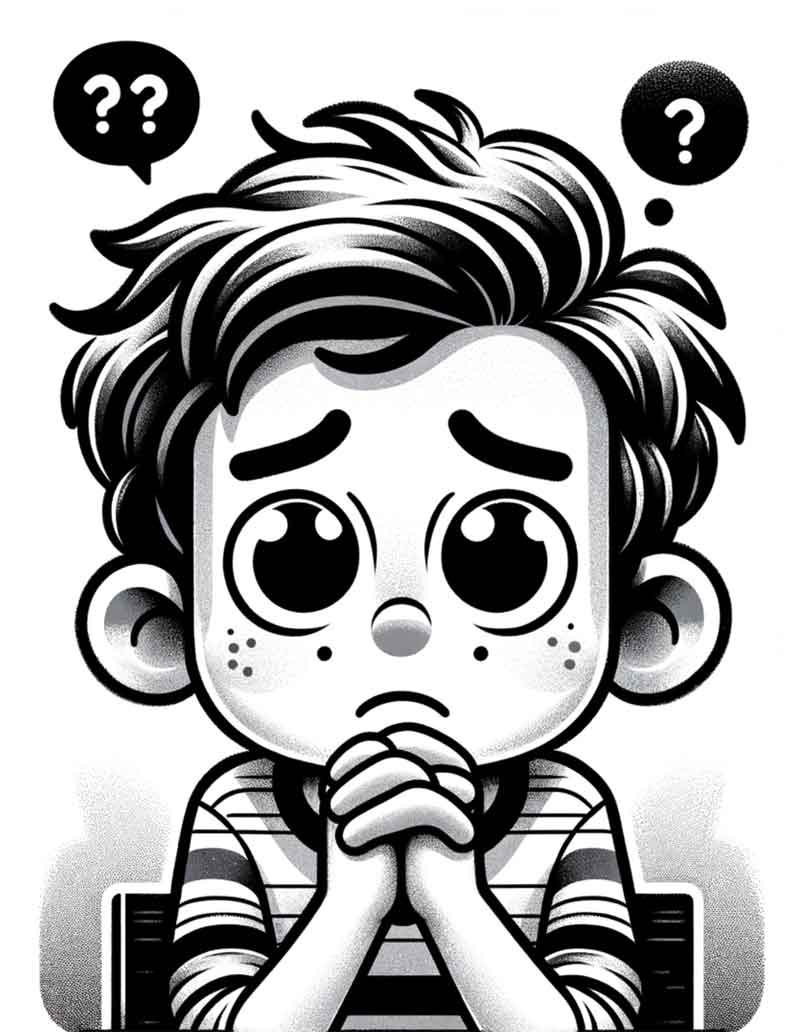Parental divorce or separation: how does it cause anxiety in a child?
Divorce and separation cause huge anxiety problems for a child – and also many other feelings.
Some of these might be:
- Shock if it came out of the blue (especially with younger children)
- Anger at the break-up of the home
- Sadness at the loss of one parent from daily contact (or forever if they’ve disappeared)
- Fear that the other parent might go too
- Relief that the arguments in the house have finally stopped
- Confusion if the parents are using the child as a messenger between them
- Frustrations at having two bedrooms, homes, sets of clothes etc
- Loss of trust if parents are speaking ill of each other to them
- Shame, even if many other children in class have separated parents
- Envy of friends with two parents still living together
- Joy if parents try to make it up to them with presents (they love new things)
- Disappointment if no birthday card or present arrives
- Hate or denial if an arranged and anticipated visit doesn’t happen
- Low spirits if life with one parent means financial shortages
I could go on, but this is the big picture through a wide-angle lens, and if you’ve come here, you’re probably a parent who just wants to make it as good as possible for a child of yours who’s become anxious about what’s happened. (You can check out symptoms of anxiety here if you haven’t already.)
And we’ll take a telephoto lens to helping your child in a moment.
But why does divorce or separation cause anxiety in particular?

Divorce does bring up many of the feelings I mentioned for your child at certain times – and the sum of all those feelings brings overwhelm. Overwhelm leads to not knowing how to cope.
And when we don’t see how to cope with the future we get anxious: anxiety is always about the immediate and middle-term future (and caused mostly by the past or past experience).
What are some of the “future” worries your child might have after you’ve divorced?
- If my parents separated, did I do something wrong?
- If one of them left, I must be bad. Will (the other parent) leave too?
- If they don’t love me any more, what will happen to me?
- Can I manage going from home to home?
- What if (the other parents’s) new family don’t like me?
- What if someone new comes to live here?
- Will we have enough money?
- Will (the other parent) be lonely?
- What if (remaining parent) dies?
Looking at this list, and taking a telephoto lens to just your child, it’s obvious that to start restoring some wellbeing and balance for your unhappy child, you need to:
1 discover their particular worry about the situation, and
2 choose a way of easing it sufficiently for their age and understanding.
It’s maybe something you’ll have to revisit a few times as they get older and the situation changes a bit.
How might the situation change over time in divorced and separated families?
- The missing parent may stop visits or other contact
- Your child may start refusing to do agreed visits to the other house
- Your child might hate anyone new you introduce into your household
- They may hear more things about divorce from friends in the playground and want to ask more questions
- Your child might find out the parent who left is in fact in prison (this happens).
You’ll think of and notice other possibilities as time passes. But let’s see how we can make the shock of divorce or separation more bearable for your child.
Remember, that around one third of children will experience parental separation (Figure 1 – information from the source, my diagram).

Remember, too, that you need to look after yourself first, as you, too, have been through a divorce or separation with (probably) mixed feelings.
You obviously can’t rely on your child or children to support you in recovering from it all, because their job is to be a child. So it wouldn’t be fair – but it’s sometimes tempting to slip into that by mistake. So I thought I’d mention it. Help yourself first and then you’ll be in a good position to help them.
Ideas for helping your child
These are listed in sort-of age order from younger to older, but I leave you to choose and adapt them since you know your child best.
1 Establish a special regular play time with your child
There are different types of play, and in my Strategies section there is a section about this sort of special play time. But briefly, this isn’t educational play (with you suggesting the kind of activity you could both do). Nor is it adult-led (with you making suggestions for how it goes if a story or craft session has started).
You could let your child choose sand, art, clay or a range of toys, but not all of them together on any one day. It’s good to have a few limits –and also a special area to be in, such as on a rug or at the kitchen table.
This is child-led, for a reason: your job is to notice what they do, what seems to be the theme of their play, and link it in your mind to what’s happening in their life.
You’ll deal with it later.
Sometimes your child will play out a story session after session and solve the worry themselves.
What’s important here is that you watch (the toys, art, clay, sand play etc), join in a bit if they ask you to, and comment from time to time as they play. (Don’t interpret to them: a fighting tiger is a fighting tiger, not their anger!) This way of being with them will validate the importance of what they’re doing and they will concentrate better.
A special playtime of this kind is especially useful any time, but also in situations (like divorce and separation) when your younger child may not want to upset you with their concerns. And when play is their best means of "talking".
So - no phone calls for 15 minutes. No getting up to prepare the dinner. No checking social media. Yes, I know it’s impossibly hard but the benefit is way beyond the hardship!

2 A book to read with younger children
Mum and Dad Glue, by Kes Gray, illustrated by Lee Wildish and published by Hodder Children’s, helps a child understand that they can’t get their parents together again but that they’re still loved.
Did you know that children sometimes contrive an accident in the hopes that both their parents will come running? That’s why they need to understand that they can’t alter the decision.
3 Invent a “child in my pocket” (which takes the focus off your child)
The idea is that this “child” has had worries about… so you can name one or more that you suspect are bothering your child after your divorce. Perhaps even before the divorce or separation, if they know that it will be happening soon.
Choose wisely, and casually say something like, “I know some children whose parents divorce worry that XXX” and add, “I’m not sure if that applies to you. What do you think?”
This will either work or not (as my father-in-law used to say, “There are two chances!”). But it shows you’re open to talking if and when your child decides they want to.
It’s just a technique therapists use from time to time – and I think it’s a good one to have up your sleeve any time when a child is anxious and you want to open up some conversation.
4 Jot down the worries on Post-Its and put them in order
If your child is willing to talk, set aside a time to have a drink and snack together and fill in Post-It notes with each worry written on one.
You can ask them to rearrange them into an order from the most worrying at the top. This gives you and your child a starting point to discuss them.
You can then listen to some more detail, or answer questions in the best way for their age. That sort of thing.
Maybe ask them what would help them feel better about that particular worry (apart from cancelling the divorce!).

If you work on your child's concerns about your divorce or separation for a few months and things don’t start to settle down gradually, do please visit my Help page where I’ve offered tips and advice for choosing a skilled children’s counsellor safely and confidently.
Sometimes an outside person can just tip the balance into making the help effective and your child getting back on a good path in life. In the meantime, you are your anxious child's best helper.























